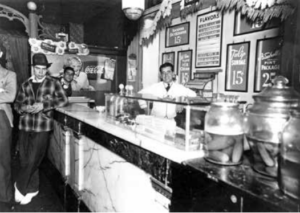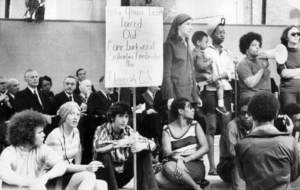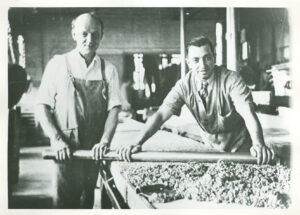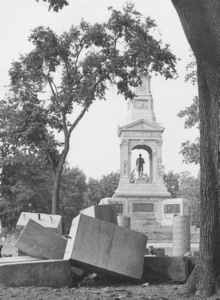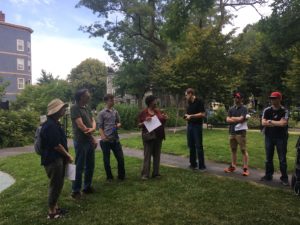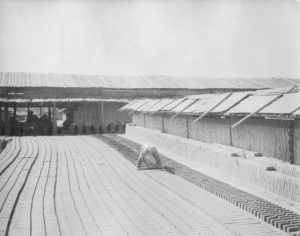Where Portuguese Families Found a New Home
By Sarah Boyer, 2013
Portuguese families from the North End of Boston and East Boston started to move into East Cambridge soon after the Civil War. Most of them had emigrated from the Azores, an archipelago 800 miles off the coast of Portugal, mainly from the largest island, São Miguel.
Their numbers increased in the late 1800s, as the immigrants found jobs in the furniture factories, like Irving & Casson and A. H. Davenport; Sawyer’s, the oiled clothing factory; and Squire’s, the meatpacking plant. Most lived on Hurley and Charles streets, close to the neighborhood’s industrial area.
In 1902, St. Anthony’s Church was established at the corner of Portland and Hardwick streets by the Rev. Antonio Pimental. He organized the Holy Ghost and Santo Cristo feasts, picnics, and reunions that still take place today. The congregation at St. Anthony’s became so large that in 1980 a new St. Anthony’s Church was dedicated.
Angelina Silva described a church picnic she attended to help the people of Santa Maria, another Azorean island: “We serve sweet bread with meat juice on it, linguica or chorizo, cabbage soup (sopa) and wine. This is our spirit santé (a celebration of the Holy Spirit). We have quite a few friends and we all sit together at the same table.”
Through the years of Portuguese immigration, several families became successful in their new homeland and were role models for others, among them, the Rogers family. Manny Rogers Sr. and his wife, Mary “May” Rogers, owned the Paradise Spa, a small store and soda fountain on Cambridge Street. In 1942, Mr. Rogers opened a funeral home in a storefront farther down Cambridge Street, now owned by his son.
In the late 1950s and early 1960s, the Azores was devastated by volcanic eruptions and earthquakes, prompting Congress to pass the Azorean Refugee Acts. In 1965, quotas were eliminated, substituting preferential categories based on family relationships to U.S. citizens. Both actions fostered another wave of Portuguese immigration. More recently, another wave of Portuguese-speaking people came from Brazil and now operate beauty salons, restaurants, and travel agencies from East Cambridge into Inman Square.
John Feitor, who left the Azores in 1968, recalled his struggle to make the American dream a reality. He taught himself English and began working as an office cleaner. Several years ago, he retired as vice president of operations and a partner of that same company, now known as UNICCO.
“For an immigrant, a person who doesn’t speak English,” Feitor said, “I saw a star so far away, to succeed in a country, which was not mine. I said to myself, I’m going to take this cleaning job until I find something, because my dreams were different dreams. It was just a temporary job, but 33 years later, I’m still in the same company. This country gave me the opportunity. No other country in the world would do that.’’

